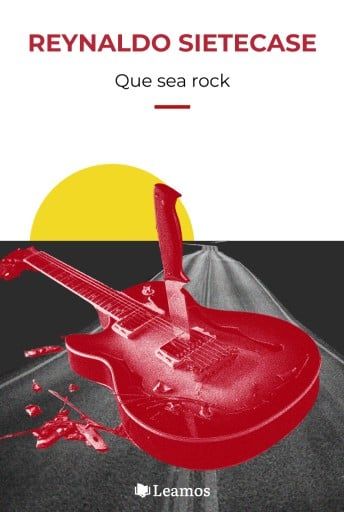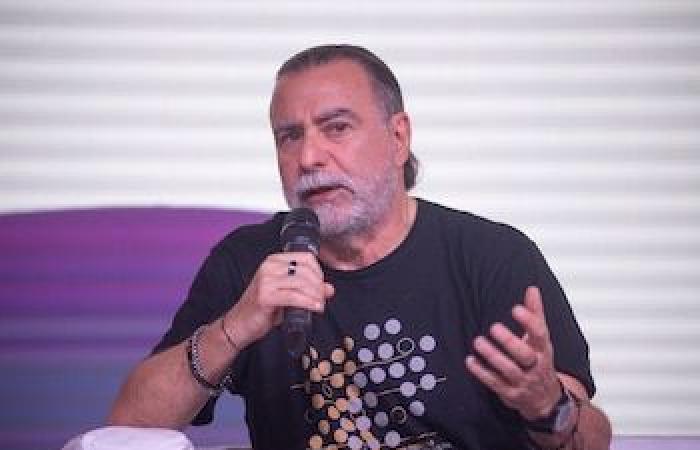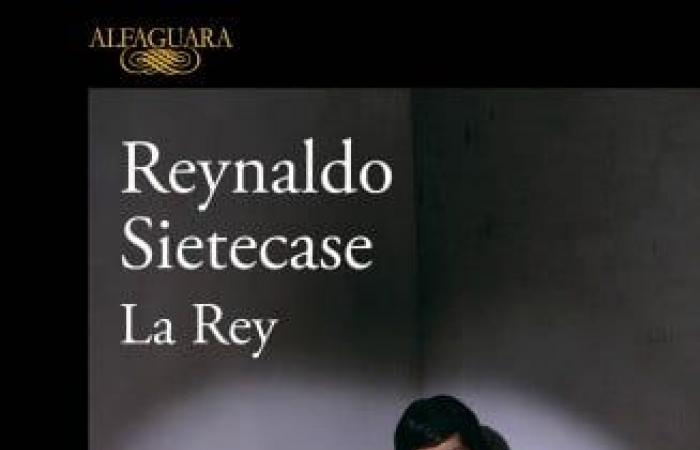During a meeting at the Book Fair, organized at the Ticmas stand and promoted by the Bajalibros Digital Platform, the journalist and author Reynaldo Sietecase He addressed issues related to literature, criminal narrative and the impact of digital reading.
During the conversation, moderate by Patricia wheelsthe author shared details about his recent work, The Kingas well as about That is rockthe story that he wrote exclusively for the digital publishing house called Leamos, associated with Infobae, which produces exclusive collections, including “we read stories” to which the story belongs.
“Whatever rock,” mixes the world of rock with an account adjustment story in a small town in the province of Buenos Aires, he said.
That is rock
By Reynaldo Sietecase
eBook
Sietecase explained that this story arose as part of an exercise in the mastery of creative writing, where he experienced with shorter narratives. Although his main approach has been the novel, the author expressed his recurring interest in the issue of revenge, an element that crosses much of his work.
In this case, the story combines the passion for music with a plot of personal justice, inspired by the complexity of the characters and the moral ambiguity that characterizes their narrative.
“It is difficult for a character to appear as good or bad. They are not categories that already work in attractive stories. human beings are complex, and the characters even more,” he said.
He added: “It seems to me that politically falls into a simplification of good and bad that does not represent the complexity that things have. That is useful for speeches, but not for democracy, which necessarily implies dialogue, even with whom one does not agree.”

During the conversation, the author also talked about his latest novel, recently published. This work, starring a female character of Paraguayan origin, addresses issues such as violence, resilience and revenge.
Sietecase explained that the main character, Blanca Rosa González, reflects a duality that makes it difficult to classify as a victim or victimizer, a feature that, according to the author, enriches the narrative. The novel travels scenarios ranging from Paraguay to Villa 31 in Buenos Aires, and culminates in Madrid, incorporating supernatural elements such as an obsidian mirror, inspired by artifacts used by the Aztecs.
“In my novel The KingI wanted to build a powerful female character, someone who faced extreme situations and that could take revenge, explore again the theme of revenge. ”
“Revenge is a very powerful issue to explore in literature because it is a classical human drive that appears constantly in stories,” he said.
The King
By Reynaldo Sietecase
eBook
The author explained that the construction of this character required an exhaustive investigation, which included trips to Paraguay, visits to Villa 31 and the learning of the Guaraní language. In addition, she had the collaboration of the Paraguayan writer Lisa Haedo to guarantee the authenticity of the character’s speech. According to Sietecase, this research process is essential to provide likely to their stories, especially when specific cultural contexts are addressed.
At another time in the talk, the relationship between literature and journalism was discussed, two disciplines that Sietecase considers complementary. Although he defines himself as a writer before journalist, he acknowledged that journalism has given tools to tell stories adjusted to the facts, while literature “allows you to explore creativity without restrictions.” According to the author, “both activities share the goal of narrating, although with different approaches and limits.”
“In journalism, I have a story adjusted to the facts, without lying, without inventing. In literature, however, everything is possible if the characters are consistent and the plot is attractive,” he said.

The conversation also addressed the evolution of the police genre in Latin America, which, according to Sietecase, differs from European or North American narratives for their focus on social reality and the absence of traditional figures such as detectives or heroic police.
In this context, stories often focus on common characters seeking truth in societies where formal justice is ineffective. For the author, this approach reflects the complexities of the region and enriches the genre with a unique perspective.
Finally, Sietecase reflected on the attractiveness of the police, highlighting that, in addition to offering a good history, they allow exploring the social, political and economic dynamics of a society. According to the author, this genre combines entertainment with a critical look, which makes it a powerful tool to understand the context in which it develops.
“The police not only offers a good story, but always has the background to society: it shows how police, justice and other actors work in a certain context,” he concluded.











